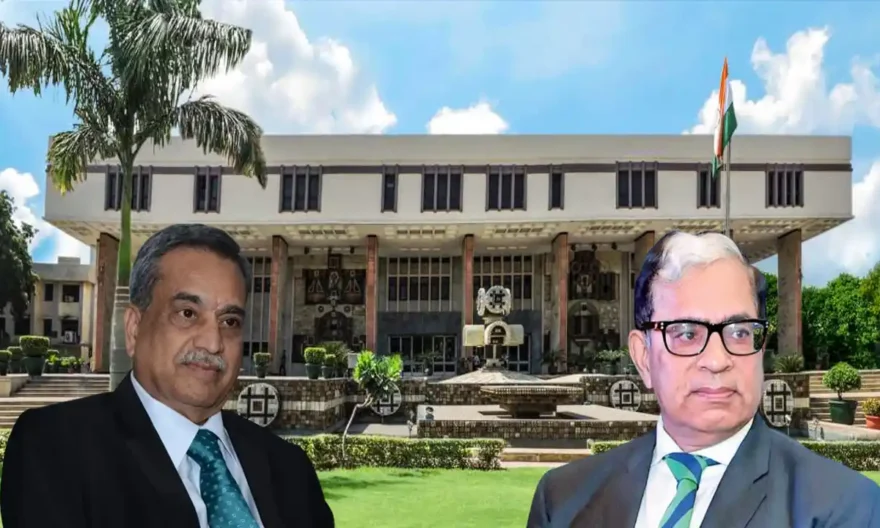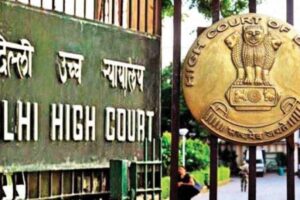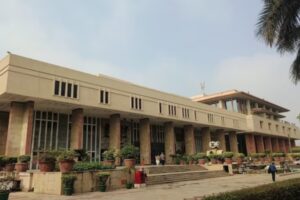
The Delhi High Court recently appointed former Supreme Court judges, Justice AK Sikri and Justice MR Shah as arbitrators in a dispute between Margo Networks Private Limited, a private firm, and RailTel Corporations of India, a public sector enterprise.
The task of selecting the third arbitrator or presiding officer will now rest with Justices Sikri and Shah. In the event that they are unable to reach a consensus on the choice of the third arbitrator, either party involved in the dispute may approach the Court.
“The agreement between the parties contemplates a three-member Arbitral Tribunal. Accordingly, Justice (Retd) Dr. A. K. Sikri, Former Judge, Supreme Court of India, is appointed as the Petitioner’s nominee Arbitrator; Mr. Justice (Retd) MR Shah, Former Judge, Supreme Court of India is appointed as the nominee Arbitrator of the Respondent. The two arbitrators shall now concur to appoint the third Arbitrator/presiding Arbitrator within 30 days of the date of service of this order,” the order stated.
A single bench of Justice Sachin Datta passed the order in response to a plea filed by Margo under Section 11 of the Arbitration and Conciliation Act of 1996.
The plea sought the establishment of an independent arbitral tribunal consisting of three arbitrators to resolve the disputes between Margo and RailTel.
On January 10, 2022, Margo sent a demand-cum-invocation notice to RailTel, raising specific claims and challenging clause 3.37 of the Request for Proposal (RFP). The said clause outlined the procedure for appointing an arbitral tribunal. Margo contended that the process was one-sided, burdensome, and contrary to the Supreme Court’s ruling in Voestalpine Schienen Gmbh vs. Delhi Metro Rail Corporation Ltd.
The petitioner expressed its desire to appoint its chosen arbitrator and requested RailTel to nominate its own arbitrator. The proposal suggested that the two appointed arbitrators would subsequently select the presiding arbitrator to constitute the arbitral tribunal responsible for adjudicating the disputes.
In response, RailTel instructed the petitioner to strictly adhere to clause 3.37 of the RFP and appoint an arbitrator from the panel maintained by Indian Railways. This panel consisted of ten individuals, each of whom was a former employee of either the Railways or RailTel. Margo argued that the RFP clause was unfair, while RailTel insisted on Margo selecting an arbitrator from the provided panel. Consequently, Margo sought relief from the High Court. Upon reviewing the case, Justice Datta determined that the panel of arbitrators offered to the petitioner was undeniably restrictive and not “broad-based” as required. “Thus, in an appointment procedure involving appointment from a panel made by one of the contracting parties, it is mandatory for the panel to be sufficiently broad-based, in conformity with the principle laid down in Voestalpine (supra), failing which, it would be incumbent on the Court, while exercising jurisdiction under Section 11, to constitute an independent and impartial Arbitral Tribunal as mandated in TRF (supra) and Perkins (supra). The judgement of the Supreme Court in CORE does not alter the position in this regard,” the bench stated.
The bench concluded that the panel provided by RailTel adversely affected the validity of the appointment procedure outlined in clause 3.37. Therefore, the Court determined it necessary to establish an independent tribunal.
Furthermore, the Court found that the appointment procedure failed to fulfill the requirements set forth in the Supreme Court’s ruling in the Perkins case, which sought to achieve a “counterbalancing” of power through the nomination of parties. Consequently, Justice Datta granted the petitioner’s plea and appointed the two former Supreme Court judges as arbitrators.




